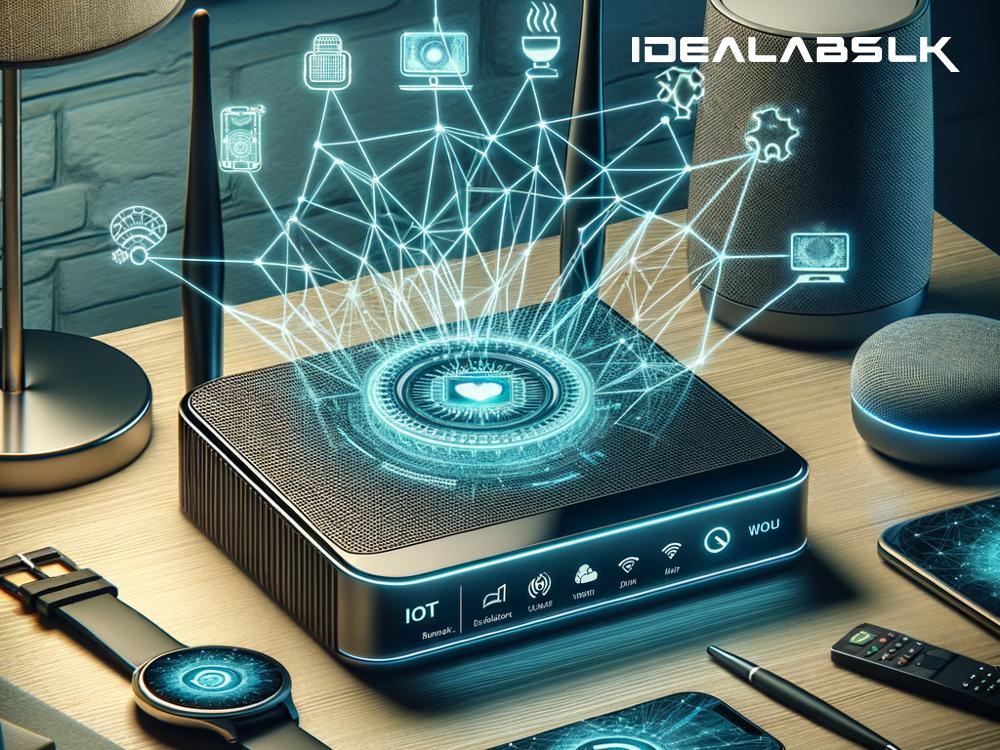AI in Smart Routers for Optimized Network Performance: A Simple Explanation
In today’s fast-paced world, where the internet has become as essential as electricity or water, having a strong, stable, and fast network connection is crucial. Whether it's for streaming a favorite show, attending a video call, or simply browsing the web, nobody likes to stare at a buffering symbol. This is where Artificial Intelligence (AI) steps in, particularly in the realm of smart routers, bringing about a sea change in how we experience the internet. Let's break down how AI is powering smart routers for optimized network performance in a way that’s easy to understand.
What is a Smart Router?
Before diving into the role of AI, let's understand what makes a router 'smart'. A smart router goes beyond simply connecting your devices to the internet. It’s like the difference between a basic phone and a smartphone. While the basic phone lets you make calls and maybe send texts, a smartphone can do that and a whole lot more – take photos, guide you with GPS, let you play games, and connect you with the world via social media.
Similarly, a smart router not only connects your devices but also manages your network, ensures security, controls traffic, and, with the help of AI, learns and adapts to provide you with the best possible internet experience.
The Role of AI in Smart Routers
-
Managing Your Devices Smartly: In a typical household today, the number of devices connected to the internet is not just one or two but often ranges into double digits. Smartphones, smart TVs, laptops, tablets, and smart home devices all vie for bandwidth. AI helps in identifying and prioritizing these devices. For example, it knows that your video call might need more stable internet compared to, say, a device that's just passively connected.
-
Optimizing Your Connection: AI is like a very efficient traffic cop. It constantly analyzes the data flow through the router, making sure that the highway of internet traffic doesn’t get jammed. It directs higher priority traffic through less crowded lanes, ensuring faster speed where it’s needed the most.
-
Self-Healing Networks: One of the most revolutionary aspects of AI in routers is the ability to fix problems on its own – what’s known as a self-healing network. AI can detect issues like signal drops or connectivity problems and can reboot parts of the network or switch channels to ensure uninterrupted service.
-
Enhanced Security: The internet, unfortunately, is not just a space for fun and learning but also harbors threats. AI in smart routers can monitor for unusual activity that could signal a hacking attempt or a virus and take action to protect your network, often before you even know there was a potential threat.
-
Learning and Adapting: Perhaps the most fascinating thing about AI is its ability to learn and adapt over time. This means your smart router gets better at managing your network the longer you use it. It learns the peak usage times, the bandwidth needs of different applications, and can even predict when you might face connectivity issues, taking steps to mitigate them in advance.
Why is this Important?
In an age where the internet is integral to most of what we do, having a router that not just passively routes internet traffic but actively manages, optimizes, and secures your network is invaluable. It can transform your online experience from one marred by slow speeds, frequent disconnections, and security worries to a seamless, secure, and swift one.
Moreover, with the Internet of Things (IoT) rapidly expanding, the future home is expected to have even more devices connected to the internet, making AI-powered smart routers not just a luxury but a necessity.
The Future of AI in Smart Routers
As technology advances, the role of AI in network management is expected to grow even further. We might see routers that not only manage our current devices but can integrate with future technologies seamlessly. The possibilities for learning and adapting will enhance, providing even more personalized and optimized networks.
In conclusion, while we often take our internet connection for granted, there’s a lot that happens behind the scenes to ensure that our online experience is as smooth as possible. AI in smart routers is at the forefront of this, revolutionizing the way we think about and use our home networks. As we move forward, the integration of AI in network management is poised to become not just a feature but a foundational aspect of how we connect to the digital world.

